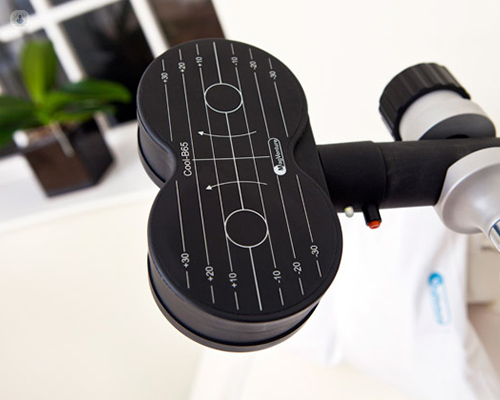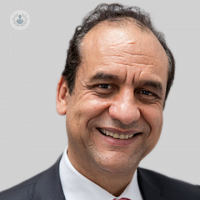rTMS – a revolutionary medication-free treatment of depression
Written by:
What is Repetitive Transcranial Magnetic Stimulation (rTMS)? rTMS or Repetitive Transcranial Magnetic Stimulation is a technology based on creating a magnetic pulse by passing electricity through a metal coil. The magnetic pulse then stimulates cells in the brain. In psychiatry it can be used it to stimulate nerves or nerve cells that have been deactivated either by the function of depression or by damage.

How does rTMS work?
rTMS can be used in stroke rehabilitation, when there is damage to the structure, and in conditions like depression, there is a depression of the function of the cells. What rTMS does is not only to stimulate the nerves to work again, but it recreates the nerve pathways again. This is called a neuroplastic effect.
rTMS works by delivering a physical pulse that feels like a tap on the head. Only the pulse is felt physically, but the pulse goes through to the other side of the head and physically stimulates the brain with a magnetic field. The pulse stimulates the blood flow and the neuron activity in the nerve cells. This causes the cells to start to communicate more, which increases blood flow and allows for more glucose utilisation, and the restoration of the function of the cell.
This is the neuroplastic effect, whereby the repeated stimulation and the activation of nerve cells helps to create new pathways in the brain to allow the cells to work for a longer, more sustainable period of time.
What conditions can rTMS be used to treat?
rTMS is used to treat many conditions, and especially works where drugs may not be successful. It also works as a replacement for drugs whereby if people don’t want to be on medication or cannot have drugs for whatever reason, whether they’re pregnant, breastfeeding, have allergies to drugs or can’t tolerate the side effects, rTMS comes in very useful as an alternative.
Conditions that rTMS has been successful in treating include:
- Migraine: it is recommended by NICE as a treatment for migraine. It can cut the migraine attack short as well as being very useful in the prevention of migraine attacks.
- Stroke rehabilitation: rTMS can help to improve the gait, movement and fluidity of movement of a stroke patient.
- Parkinson’s disease: Helps to improve movement and fluidity of movement.
- Alzheimer’s disease: an improvement in memory is seen with the use of rTMS.
- Chronic schizophrenia: an improvement in memory is seen.
- Pain syndromes: rTMS has been shown to reduce pain perception.
- Fibromyalgia and chronic fatigue syndrome: quality of life improves along with pain parameters regardless of the improvement of mood.
All of these treatments are very encouraging, and more applications for the use of rTMS are being considered, particularly as there is no harm and no side effects.
Who is rTMS suitable for?
rTMS is effectively suitable for everybody except those with a history of seizures which is uncontrollable. If you have a seizure disorder such as epilepsy, which has failed to respond to treatment or you’ve had active seizure or resistance seizures before, then rTMS may not be the best treatment for you as it could aggravate the seizures.
Other patients that would be suitable, are those who don’t want to take drugs, those in whom drug treatments fail, those who cannot tolerate drugs or have side effects from drugs, such as metabolic, physical or sexual side effects and weight gain. rTMS is an alternative for those who do not want to take medication.
rTMS is suitable for women who are pregnant or who are breastfeeding as rTMS doesn’t interfere with the development of the foetus or with milk production.


